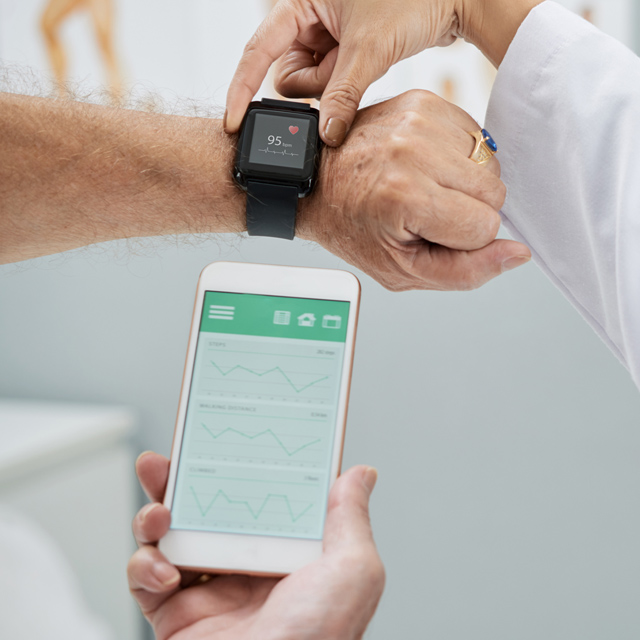Patients often ask gastroenterologist Simon Mathews what apps they can use to help them navigate their digestive issues. Mathews can’t confidently recommend particular products, he says, because he doesn’t know if they are accurate or useful. Reviews from users, clinicians or technology experts tend to be subjective, he says.
Mathews decided to address the problem by creating a scorecard that evaluates health apps with a uniform set of guidelines. He hopes it will become standard, giving all consumers the same system for evaluating digital health tools.
Developed with experts from the Johns Hopkins University Applied Physics Laboratory and Johns Hopkins Bloomberg School of Public Health, Mathews’ scorecard will evaluate apps along four criteria:
- Technical: Does the app accurately and precisely measure what it claims? Is it a secure repository for protected patient information? Does it easily move the information into electronic medical record systems, where clinicians and patients can access it in a useable format?
- Clinical: Do studies show that it improves condition-specific outcomes? How does the technology compare with the current clinical gold standard of care for that condition?
- Usability: Is the app designed so that patients can easily use it correctly for its intended tasks, including navigation, data entry and changing the preference settings?
- Cost: What are the total costs of ownership, both for the patient and for a health system using the app’s information? Are there expenses associated with bringing the data into an electronic medical record system and displaying data in a way that is useful for clinicians and patients?
Mathews hopes the scorecard will become a standard tool that gives patients and clinicians important guidance as they make decisions about products with tremendous potential to either help or harm.
The urgency is growing, says Mathews, because the market is changing quickly. “Going forward, more apps will pair with wearables that measure clinical metrics like heart rate, blood pressure or insulin levels,” he says. Accuracy will be even more essential because the information gathered by the devices will form the basis for diagnoses and even treatment.
“We want to create clarity through an approach that is standardized, scalable and pragmatic,” he says. “There is a need for it in the marketplace.”

